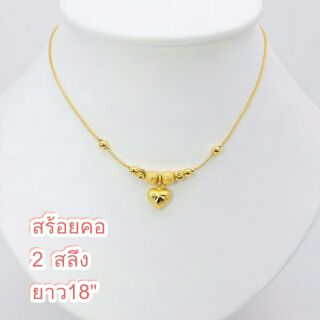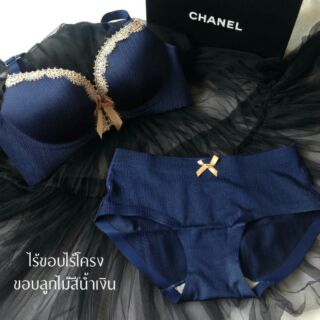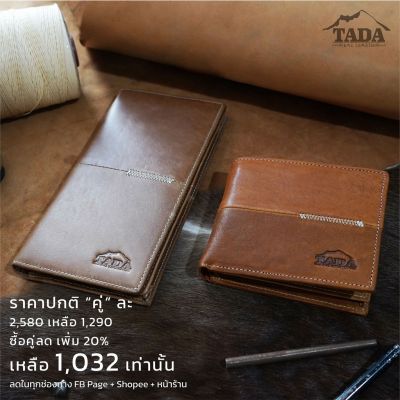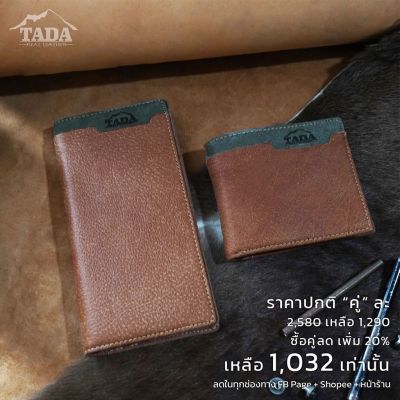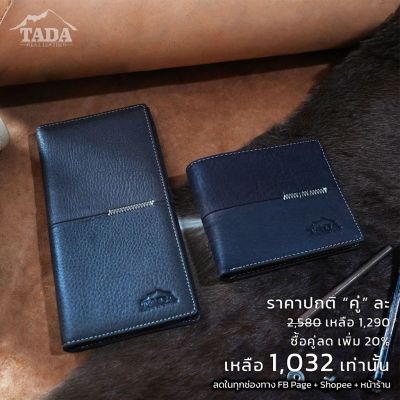!!! Philips LED TV 3D ไร้ขอบ ขอบกับจอเรียบสนิท 40PFL8605H Mand in Hungary , 200 Hz,Full HD,Perfect Pixel Engineer ,Internet TV, Ambilight, Response time 1 ms ราคาปกติ 79990 บาท / พิเศษเพียง 35990 บาท(เพียง 1 เครื่องเท่านั้น
โดย จิรวัฒน์ บุญนาค ปรับปรุงล่าสุดเมื่อ 21 ต.ค. 2554.
Philips 40PFL8605H
STORES
£
amazon.co.uk
799.98
Amazon Marketplace
962.72
Hi-Spek electronics
1149.99
Compare prices
Specifications
Screen size
40 inches (101 cm)
Resolution
1920 x 1080
HD compatibility (1080i/720p)
Yes / Yes
HD Ready certification
Yes
Brightness
500 cd/m²cd/m²
See all specifications
Contrast ratio
500000:1
Viewing angles (H+V)
176° / 176°
Response time
500000 ms
Sound level
2 x 10 Watts RMS
Connectivity
HDMI (x4) • SCART (x2) • Composite • VGA
Dimensions (LxHxW)
636 x 965 x 248 mm
Weight
20 kg
Type
LCD
3D
yes
Hide specifications
Pierre-Jean Alzieu
Translator: Sam McGeever
Test date: November 08, 2010
Our Readings
Contrast:
3058:1
Black level:
0.07 cd/m²
Gamma quality:
4.4/5
deltaE:
3.1
Average discrepancy across display:
6%
Viewing angles:
2.3/5
Energy consumption:
63.7 W
Multimedia player:
2.5/5
Find and compare our other readings in our Face-off.
We take these readings using the best settings for watching a movie. Cinema mode is generally the one we use. Wherever possible, we set the white levels at 200 cd/m².
See also: How do we test TVs?
The Philips PFL8605H is a 3D TV-from 40'' and up; smaller models are 2D only-which has an ASV LCD panel backlit with Edge LED technology. As well as being 3D compatible, it has impressive list of features, including everything you'd expect from a top-of-the-range TV: support for DLNA, Net TV, Pixel Precise HD, 200 Hz and HD Natural Motion.
3D Glasses an Optional Extra
Find the best price
Just like Sony, Philips sells 2D televisions that are 3D compatible, which means that to enjoy films in three dimensions, you also need to buy a separate 3D pack (around £250), with two pairs of glasses (£100 a pair) as well a transmitter to keep them in sync with the display.
Build Quality and Design
As well as being compatible with 3D, the PFL8605H has an attractive glossy black plastic frame that's complemented by a transparent panel in front of the screen. It looks great, but it's very shiny: you'll have to be careful about where you put this TV and keep it out of the way of direct light sources.
The connectivity options are all rather traditional, apart from the coaxial digital audio output, something that most manufacturers provide as an optical audio out.
On one side, you'll find a USB port where you can plug in an external storage device formatted using either FAT32 or NTFS and play your multimedia content directly. Unfortunately, the media player only just about scrapes our average score thanks to the very short list of formats it can support: JPEG photos, MP3 music, and DivX5 and 6 video in SD and HD. DivX 6 HD video worked fine up to 38 Mbps, but once we encoded it at a bitrate of 42 Mbps or more, playback became visibly jerky.
With Net TV, you can connect the PFL8605H to the Internet to watch YouTube clips or surf the web. Overall, it's pretty slow and isn't yet a compelling experience. Using a computer is still faster, and, above all, easier.
The remote is stylish and its rounded shape makes it easy to hold, but Panasonic has taken minimalism too far, so there aren't enough buttons to allow for handy shortcuts. To set things up, you have to go through the Welcome menu that you can see here:
In the same vein, Panasonic has tried to make things easy for new users by including an assistant designed to help you configure the TV. Unfortunately, though, it just makes the menus seem even more complicated.
Input lag compared with a CRT: 17 ms on average, or a single frame
Connecting it to a PC went without a hitch, and the input lag is just 17 ms, or less than one frame. Gamers won't have any problems with this TV, but nobody else need worry about this statistic.
Responsiveness: 9 ms
When we tried our responsiveness tests, the ASV panel featured in the Philips 40PFL8605H managed a response time of 9 ms, compared to the Samsung LE46C750 which was at 10.5 ms. Remember that the lower this reading, the better. This TV takes 8 ms to completely remove a frame on a light background and up to 10 ms if the background is dark. Or to put that another way, duing an average of 9 ms, fast-moving objects will be in two places at once, giving them a blurry appearance.
3D Quality and Problems
Unlike some of its competitors, Philips has decided not to include 2D-to-3D conversion, but that's not necessarily a bad thing. The attempts we've seen so far haven't been very impressive and we're not sure it's a viable technical solution right now.
Unsurprisingly, showing a Blu-ray 3D disc is great quality: objects appear to leap out of the screen and there's a real sense of depth of field. However, this first generation of 3D TVs shares a common problem, crosstalk. This confusion between the video signals designed for your left and your right eye can lead to viewers seeing some objects double.
These two photos are both available at full resolution. Click on them to view them fullscreen.
Compared to the Samsung UE46C8000, the Philips 40PFL8605H suffers from less crosstalk. However, it's hard not to spot the problem: notice how the photos at the topshow traces of the frame designed for the opposite eye along the inside edges, as well as translucent copies of the big L and R characters.
To measure the effects of crosstalk, we used this test card in side-by-side 3D mode. The frame is divided in two, and the left-hand side should only be seen by the left eye and the right-hand side by the right eye. Philips' TV produced similar results to the Sony's Bravia HX803 and HX903, making it less visible than on the Samsung TVs and their PVA panels. However, things are still far from perfect. Part of the right hand side of the image is still visible on the left and vice-versa. As you can see if you click on the image above, the two Panasonic plasmas, the GT20 and VT20, are the least affected by this problem.
Image Quality: Factory Settings
It's rare to see a TV roll off the production line configured as badly as this one. Others we've seen have produced bright, vivid pictures with the default settings, but Philips has really gone to town, leaving completely false colours. It's even worse than the Sharp Aquos LC-46LE820. Our equipment reveled an average deltaE of 11, while the gamma curve was completely out of place. It's hard to produce worse results, but fortunately, a quick visit to the settings menu can make a big difference.
Dreadful colour reproduction with the default settings: average deltaE of 11
Image Quality: Cinema Mode
Once you're in Cinema mode, all of the problems we mentioned in Standard mode disappear. The picture is still a little too bright, and given that you can't adjust the backlighting directly yourself, we suggest you turn the contrast downa little. At 72, we measured a brightness of exactly 200 cd/m², which is perfect for everyday use.
The gamma, on the other hand, is a little low by default, so we'd increase it from 3 to 4 to ensure different shades of grey are more evenly distributed. We also turned off all of the filters in the Pixel Precise HD menu. After that, it's up to you to decide whether or not you like the 200 Hz or HD Natural Motion options. The latter can lead to isual artefacts around fast-moving objects but the price to pay for excellent fluid is a 'camcorder' look to videos.
Average contrast ratio:3197:1
Once we'd set it up like this, the PFL8605H produced an excellent contrast ratio. Indeed, it's the first ASV panel we've seen with such good results: 3197:1.
Colours in 'Cinema' mode with 'Warm' colour temperature: average deltaE of 2.5
Colours are reproduced naturally, and we measured an average deltaE of 2.5, which is another excellent result. This test examines the discrepancy between the colours requested by the video source and those actually shown on screen. When the average value falls to below 3.0, any remaining problems are invisible to the naked eye.
There's no point in increasing the sharpness if you want to watch a HD film, so we left it at 1. Given that upscaling SD content is a little blurry, then a little extra can help, so you might want to turn it up.
Audio Quality
The PFL8605H produces a good sound, and, despite having such a thin frame, you'll be able to use it to watch a film without wanting to cover your ears. However, we still recommend you invest in a Home Cinema kit or a sound bar if you really want to enjoy your favourite movies.
Energy Consumption
As well as producing a video and audio treat, the Philips 40PFL8605H manages to be energy efficient too. It only needs 0.1 W while on standby, and it's just as impresive when you switch it on. With the 40'' set to a brightness of 200 200 cd/m², we measured a consumption of just 98 W.
Pluses
-
Excellent contrast with deep blacks: 3200:1 and 0.07 cd/m²
-
Accurate colours: average deltaE of 2.5
-
Good sound quality
-
Media player compatible with NTFS
-
Low energy consumption: 98 W
Minuses
-
3D glasses an optional extra
-
Glossy screen subject to reflections
-
Narrow viewing angles
-
Media player doesn't support many video formats
-
Remote looks good but not very easy to use
The PFL8605H was an excellent surprise for us: it's the first time a Philips TV has produced such a great picture, with excellent results on offer in both 2D and 3D.
| ราคา: | 35,900 บาท | ต้องการ: | ขาย |
| ติดต่อ: | จิรวัฒน์ บุญนาค | อีเมล์: |  |
| สภาพ: | มือสอง สภาพ 98%
| จังหวัด: | กรุงเทพมหานคร |
| | | |
| โทรศัพย์: | 0849020540 | IP Address: | 182.53.2.xx |
| มือถือ: | 0865247793 | |
| ที่อยู่: | จรัญสนิทวงศ์ บางพลัด |
|
| คำค้น: |
40pfl8605 |
|
ประกาศอื่นๆในหมวดหมู่เดียวกัน 20 รายการ (แสดงทั้งหมด)
หน้า แสดง - จากทั้งหมด 3499 ประกาศ
|
|
|
มีหน้าร้าน+ที่จอดรถ |
|
|
|
14,500 บาท |
|
|
|
4,990 บาท |
|
|
|
15XX0 |
|
|
|
6,350 บาท |
|
|
|
1,700 |
|
|
|
1,490 บาท |
|
|
|
1x,xxx ผ่อน 0% |
|
|
|
490 บาท |
|
|
|
5,000 บาท |
|
|
|
ไม่ระบุราคา |
|
|
|
18,900 บาท |
|
|
|
139,000 บาท |
|
|
|
600 บาท |
|
|
|
12,500 |
|
|
|
6,900 บาท |
|
|
|
3,000 บาท |
|
|
|
898,989 บาท |
|
|
|
139,000 บาท |
|
|
|
139,000 บาท |






